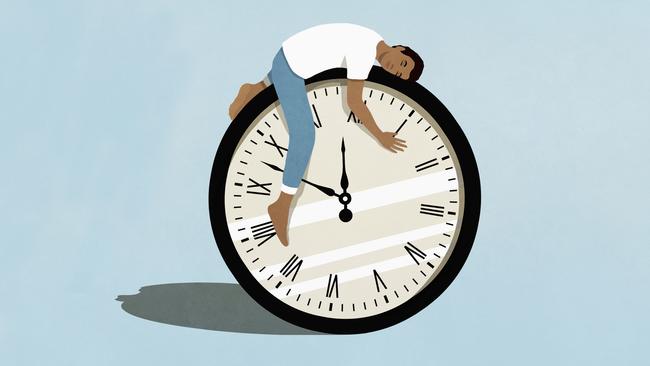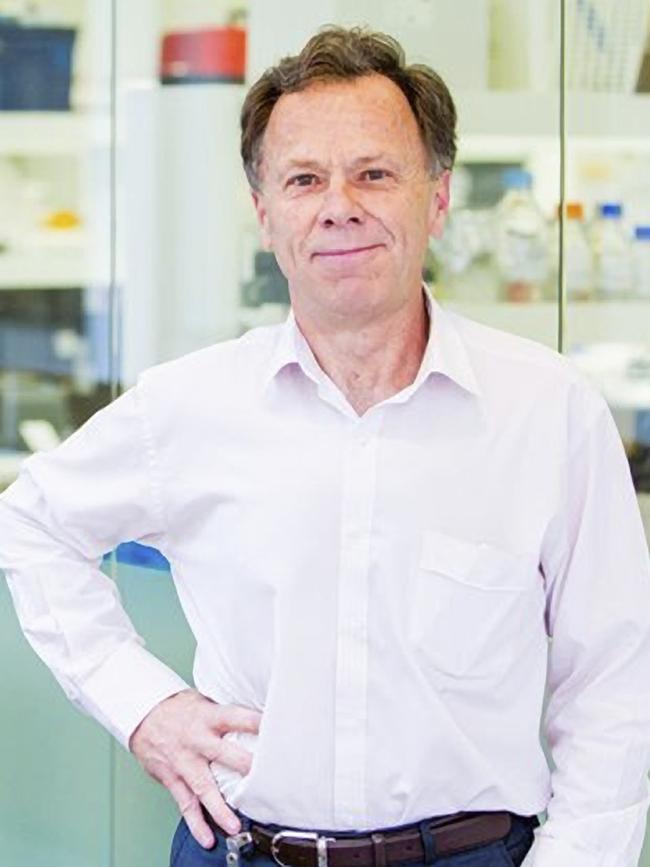Fatigue, burnout and low energy are symptoms of a root cause
While we can now move freely around as Covid finally releases its grip, many of us won’t. We’re just too bloody tired.

W e thought it would end; the mind-numbing exhaustion that accompanied the incessant waves of new Covid variants, lockdowns and restrictions. But while we can now move freely around the country – and for the most part, the world – as Covid finally releases its grip, many of us won’t.
We’re just too bloody tired.
It’s easy to blame the pandemic for this collective lethargy, but the era of exhaustion was already upon us well before the virus wreaked its havoc. Whether it’s burnout, exhaustion, tiredness or fatigue, energy seems to be the one thing we’re all in short supply of.
Just a few months before Covid began making headlines, the World Health Organisation added burnout to its International Classification of Diseases. The organisation classifies it by three factors, including “feelings of energy depletion or exhaustion”, as well as reduced professional efficacy and feelings of negativity or cynicism related to a person’s job.
As I write this, my husband sends me a text from his office, interrupting my train of thought. “I’m so f--king tired,” it says. Huh.
I was planning to pen this feature through the lens of a 37-year-old working mother dealing with chronic illness and general burnout. Because I don’t know of any woman my age who isn’t in some way dealing with the aftermath of a decade of hustle; that period from a woman’s mid-20s to early 30s where she races to cram 20 years of career growth into 10 before the fertility clock strikes midnight.
If the 2010s was the era of busyness, the 2020s seem to be shaping up as one defined by exhaustion.
I asked my mother, an archetypal Boomer, whether exhaustion was the baseline from which she and her friends operated at the same age.
“I was tired when you were born because I wasn’t getting much sleep, but aside from that, I never felt like energy was a big problem,” she said. “I honestly don’t know how you all do it, juggling so much and living your lives under the microscope of social media.”
It’s not just millennial mums who feel they’re languishing at a two or three on the energy scale. Everyone, it seems, is struggling with some sort of fatigue or sense of exhaustion right now.
“I’m so tired.” I overheard these words uttered by a fellow caffeine addict and work colleague as we lined up to order our next hit at the cafe near our office. She is all of 22. I assumed it was the result of a fun – and late – night out. “No, it wasn’t actually,” she shrugged. It was just her current default state.
Another colleague, also in his 20s, offered up his own struggle. “I used to run a lot, and then I got Covid,” he said. “After that, I just couldn’t do it any more without my heart rate jumping to 170. I lost all my fitness. Even now, I’m still nowhere near back to where I was before I got sick.”
Fatigue is slippery. Doctors won’t diagnose someone with it because fatigue itself is not considered so much an illness, but a symptom. “In the English language, fatigue is a pretty woolly word,” says Professor Andrew Lloyd. The director of the University of NSW Fatigue Clinic has spent the past two decades investigating the causes of fatigue and how best to manage it. He explains that the causes of fatigue can be linked to everything from sleep disorders, underlying chronic illness or diseases such as cancer, psychological disorders and viruses such as Covid.

“From a medical side, there are lots and lots of specific symptom manifestations that get labelled as fatigue,” Professor Lloyd says.
“There will be patients who will say ‘I’m tired all the time’, but when you delve a bit deeper, what they’ll really be describing is that they’ve – for all sorts of reasons – lost interest and pleasure in doing stuff of whatever sort, and sometimes psychiatric parlance is called anhedonia, which is lost interest or concern and is a feature of major depression.
“I could go on down a list of 50 to 100 variations of what we might call medically or psychiatrically explained fatigue versus unexplained, which is what chronic fatigue syndrome or post-infectious fatigue should be.”
Post-infectious fatigue has become a major focus for Professor Lloyd and researchers around the world who are trying to identify why our energy remains low once a virus and the body’s inflammatory response to it are no longer detectable. “We’ve gone a long way down a list of possibilities,” Professor Lloyd says. “Maybe something happens with your hormones, or maybe you get deficient in some vitamin; maybe it’s all just a psychiatric disorder. And the answer is no, no, no, no, no.”
One of the most compelling theories is that the immune system initiates a response in the brain when a virus is detected, which persists even after a patient has no more signs of the disease.
“It’s inside the brain that much of the activity is generated,” Professor Lloyd says. “That’s where fever is generated and aches and pains are generated … And we think that process gets switched on.” This collective energy deficit has given rise to what is now being dubbed the “exhaustion economy”, a growing market for sleep aids, prescription drugs and energy supplements designed to offer quick energy hits and temporary reprieve from insomnia.
Can’t sleep? There’s a pill, or an app for that. Can’t get out of bed in the morning? There’s something for that too. But while these potions and gadgets may help temporarily relieve us of our energy woes, the root causes are far more complex.
We’re in the midst of a syndemic. Our bodies are already dealing with the affects of stress, chronic lifestyle-related conditions such as obesity and heart disease and mental illness, and when combined with acute infections such as Covid, outcomes can be much more poorer.
Rather than reaching for a caffeinated pick-me-up in the morning and a sleeping pill to wind down, psychologist Dr Adrian Allen says it’s crucial to address the underlying causes and factors exacerbating this lack of energy so many of us are struggling with.
“One example is long work hours (on either paid or unpaid work), which people have noticed more since the impact of Covid lockdowns and working from home,” he says. Another factor is our tendency to use mobile screens before bed, which Dr Allan says can interfere with our sleep patterns.
No matter the cause of our fatigue, sufficient sleep of eight to 10 hours a night, limiting the hours we work, spending time with friends and family and adopting a regular mindfulness practice can all help to improve our energy levels.
And if you’re still struggling to identify why you just can’t get out of bed in the morning, Dr Allan says it is important to see a professional.
“If people have tried to reduce fatigue on their own without much improvement, then it’s helpful to see the GP for advice,” he recommends.
“GPs can help identify and manage a possible physical basis, and also refer people to a psychologist or psychiatrist to assist people with their mental health if necessary.”


To join the conversation, please log in. Don't have an account? Register
Join the conversation, you are commenting as Logout